#the community needs to be a safe space for everyone. but groups will inevitably clash and that’s why we have the block button and filtering
Text
T7!
lmao this entire fic is full of inside jokes. originally made for the Filo A3!/Genshin discord I’m a part of as part of the server bang. it’s already been uploaded there, so i decided to fix it up a bit and upload it here as well^^
i may not be active anymore in the server; i’m more of a lurker now, but i’d like to dedicate this to the server members. you guys gave me lots of good times and things to smile about & look forward to during a time when i was trying to pick myself up. thank you <3
--
One event that Izumi brushes off as the daily shenanigans that come along with being the director of the Mankai Company has a bigger impact on her actors than she thought.
or:
The director is clueless to the thirst/advances of the company. The troupes struggle. The director remains oblivious.
--
It all started with a towel.
Living in a dorm along with over twenty young men, surely there would be no shortage of needs for day-to-day life… or so Izumi thought. Staring at her reflection in the bathroom’s mirror has made her realize that perhaps she’d overestimated the dorm’s supplies.
‘Maybe if I’m quiet enough, no one will notice me sneaking back to my room.’ She thinks to herself in dismay, tugging at the bath towel that just barely covered the more…indecent parts of her body.
‘It’s just my luck that my bathroom sprung a leak.’
Thus, Izumi was forced to use one of the communal bathrooms shared by the actors. Of course, she’d made it abundantly clear that no one was allowed to go in while she made use of the actors’ facilities (Izumi’s also fairly sure that Sakyo had stressed that no one was allowed even remotely near the communal bathroom while she were there) but the thought of walking back to her room with nothing but a towel on made her anxiety skyrocket.
‘I should’ve just waited for my own shower to be fixed.’
Being too used to having her own private bathroom, Izumi had developed the habit of only grabbing a towel from a cabinet before heading off into the showers since it’s directly connected to her room. Why bother bringing new clothes into the bathroom and risk getting them wet when she could just change in her own bedroom?
Obviously that logic was null in this scenario – what with the trek she now has to make back to her room from the communal showers, and only in a towel! Moreover, the towel was obviously intended for only covering the lower half of men, if the short length was anything to go by.
Mulling it over, Izumi weighs the pros and cons of walking through the dorm’s corridors in only a towel to shield herself, then allows herself a few minutes to sulk over the decision made. Taking a deep breath, Izumi steels herself before slowly creaking open the bathroom door, peeking for any bystanders. Seeing
none, she carefully tiptoes back to her room.
Thud. Thud. Thud.
As she makes her way through, Izumi feel like every step echoes throughout the halls and she instinctively tightens her grip on the towel, desperately trying to draw it tighter and more securely around her. Thankfully, Izumi is able to make it to her room without incident – she really needs to thank Sakyo for clearing the area later – when suddenly, as her room is less than a meter away, a shadow darts into her field of vision.
Already tense and on edge from the situation she found herself in, Izumi lets out an ear-splitting shriek and all hell breaks loose.
Footsteps come thundering her way and Izumi’s brain short-circuits as the whole company suddenly appears in the corridors, all of them calling out “director” or various other namesakes in worried tones.
Izumi struggles to form a coherent sentence to tell them that she’s fine and for all of them to stay the hell away please and thank you, when the shadow from earlier who she now identifies as Misumi in the middle of a triangle hunt cheerfully calls out,
“Oh, director! Did you have a nice bath?”
The corridor goes eerily quiet, and Izumi feel several pairs of eyes focused on her state of dress – or lack thereof, rather.
Masumi and several other of the younger members faint almost instantly. Most of the adults’ faces flush bright red as they stammer out apologies, while some others politely avert their eyes.
One thing is for certain.
The entire company is suddenly reminded that their director is in fact a very attractive, very single, woman.
As all the men seem to be distracted by their own mental turmoil, Izumi takes the opportunity to slip into her room. After making sure the door is securely locked, she deflates and slides down against the door. The shuffling of footsteps fades away, signaling the company members’ retreat, and Izumi’s mind takes
its sweet time to process what just occurred.
Once again, the Mankai dorms are filled with Izumi’s ear-splitting shriek, only this time the members are wise enough to leave her be.
--
By dinnertime, Izumi figures she’s calmed down enough to let bygones be bygones.
“Thanks for the food!” she forces herself to say in a cheery manner, tight-lipped smile giving her away.
She’s honestly still feeling a bit apprehensive by the stares she receives over the dining table, but her actors fall back into an easy conversation. Izumi, on the other hand, finds herself half-heartedly poking the eggplant tempura that she normally eats with gusto as a side dish to her beloved curry. Something
about the atmosphere makes her feel uneasy as if there’s some sort of unspoken tension that everyone but she has figured out.
Again, Izumi feels everyone’s eyes on her as she abruptly stands up. In her haste, the chair screeches against the floor and her tableware clatters noisily, making herself the unwanted center of attention.
“I…I’m not feeling that hungry tonight.” Izumi mutters, refusing to meet anyone’s eyes. Mustering up the last of her dignity, Izumi shuffles out of the room and goes straight to her bedroom, making sure the door locks.
Unbeknownst to her, mere minutes after she’d cleared the vicinity, Sakyo abruptly calls for an all-troupes-on-deck meeting. After clearing the dining area, the large group of young men make their way over to the living room and try their best to get comfortable amongst one another, the room suddenly feeling very cramped with everyone in the room at the same time.
In front of them all, the only one standing, Sakyo paces back and forth as he strategizes the best course of action to approach the situation. He comes to a sudden halt and the group’s attention is immediately focused on Sakyo, with the younger ones’ backs stiffening as they straighten up in an unconscious sign of
deference.
“We do not speak of the incident that happened earlier this morning.” Sakyo’s voice comes out quietly but threateningly as he levels a glare at each and every occupant of the room. “We make the director feel as safe as possible in our presence. Got it?”
Not bothering to wait for a response, Sakyo stalks out of the room. Slowly, the actors disperse and go about their usual nightly activities, but fuelled by the reminder of the spectacle that had occurred that morning gave them some other plans in mind.
--
“Tangina mo, Banri.” Itaru swears under his breath as his character is suddenly left for dead in the middle of a space station. The culprit was none other than Banri, who had Itaru and the other players in the server fooled.
“What was that, Chigasaki?” Chikage questions with mild interest from his side of the room.
Itaru takes out his phone and opens up another game to play as he waits for Banri to inevitably win as the impostor in the game.
“Playing a game with some strangers online. Picked up some lingo from these Filo players that Banri and I happen to clash against a lot.” Itaru elaborates with a nonchalant shrug of his shoulders.
“Hm. I do wonder how you or Settsu intend to win the director over when all you do is mess around in those games of yours.”
Itaru’s fingers hover over his phone screen for a split second as he processes the older man’s words.
“…Excuse me?”
“You are aware of what the... ah, towel incident this morning has caused, aren’t you?”
“Sakyo already told us to not bring it up.” Itaru says calmly, but Chikage notices his roommate’s ears redden at the reminder, and is pleased to see that his goading has its intended effect.
“Of course.” Chikage concedes. “However, the younger members of the troupe can be quite rash.”
Itaru lightly drops his phone onto his desk and runs his fingers through his hair as he grudgingly turns to his roommate. Itaru hastily ties his bangs away from his face and levels what he hopes is a neutral stare at Chikage.
“Not my job to keep the kids’ thirsting under control.” He says, then turns back to face his monitor.
“I suppose…”
With that, Itaru starts playing his game again as the subject matter is dropped.
“But perhaps it’s not the kids you should be worrying about.”
…or so he thought.
Again, Itaru takes the bait and bites out, “What exactly are you trying to say, senpai?”
Chikage changes his expression into one of feigned innocence. “Nothing, really. Ah, I do hope you don’t mind having curry for lunch tomorrow. The director and I will be cooking together all morning.”
Itaru is about to stand up and retort, fed up with Chikage’s subtle remarks, when a loud noise blares from Itaru’s computer, causing him to curse and swiftly turn back to his screen. “Shit, you’re distracting me from my game. Do me a favor and go back to being the absentee roommate for a while.”
With an amused chuckle, Chikage acquiesces to his roommate’s request and heads out, closing the door behind him.
Itaru slumps back against his chair as soon as the older man is gone and puts on his headset. Taking a quick glance back before clicking it on, he speaks in a low voice,
“Hey, director, sorry for muting my mici. Let’s get back to the game, shall we?”
--
The next morning, Chikage walks into the kitchen with a special bag of spices in hand. However, seeing another member of the company already in the kitchen with the director has him narrowing his eyes and his mouth curving down in displeasure.
“So first we have to roast the eggplant before we dip it in the egg?” Izumi asks her companion.
Chikage takes in the sight of Omi leaning in quite close behind the director with the excuse of supervising her work, and a twinge of annoyance bothers him.
“That’s right.” Omi confirms, drawing even closer to Izumi as he points to the long, purple fruit. “But before that, we peel the skin off after it’s done roasting.”
The tall college student is practically caging Izumi as both hands reach from either side of her to demonstrate how to peel the eggplant. At this, Chikage decides to make his presence known.
“I was under the impression that it would only be the two of us making lunch, director.” he butts in, frown replaced with a sharp smile.
“Oh, Chikage!” Izumi calls out as she casually slips out of Omi’s arms, oblivious to the pout on Omi’s face as she does so. “Don’t worry! We’re still making curry for lunch. It’s just that Tasuku got a bunch of eggplants from helping out at a farm, so we’ve been trying to figure out different ways to cook them. I
believe this dish is called tortang talong? Anyway, Omi insisted that he help me out with lunch today! I hope you don’t mind.”
“Yes, I hope you don’t mind the intrusion, Chikage.” Omi echoes, looking completely unapologetic as he says so.
Not one to back down, Chikage completely ignores the younger man’s backhanded apology and instead turns his attention to the director.
“Here.” he says, holding the bag of spices out to Izumi. As she takes the bag from Chikage, his hands linger on hers for much longer than strictly necessary, causing her grip on the bag to fumble. A blush quickly creeps onto Izumi’s face.
“Th-thanks.” She stammers, hastily pulling her hands back as soon as she’s gotten a firm hold on the bag of spices.
The three adults cook in the kitchen with an awkward silence that Izumi just can’t figure out the root of. An unspoken tension looms over and she can’t bring herself to speak up. Lost in her thoughts, Izumi picks up a roasted eggplant then yelps at the heat of the newly roasted fruit, burning herself. Before Izumi can
act, Omi grasps her wrist, inspecting her hand.
“Be careful, alright?” he says gently, guiding Izumi over to the sink and sticking her hand under the running faucet.
Izumi involuntarily shivers, and she’s not so sure if it’s because of the temperature of the cold water or if it’s because of the tender way that Omi handles her.
“Let Omi and I take care of the rest, director.” Chikage’s voice comes out harshly, snapping Izumi out of her thoughts. He hands her an ice pack and she takes it with a grateful smile.
“That’s probably for the best.” Izumi agrees, then turns off the faucet. As she leaves the kitchen and heads over to the living room, Izumi can feel the tension from earlier return tenfold and quickly hightails it out of there, deciding that she didn’t want to know, nor did she want to get caught up in the crossfire.
--
“So it’s curry again today, huh.” Tenma says dejectedly as he settles at the dining table.
Most of the other company members mumble the same sentiment but ultimately sit down.
Citron’s eyes light up as he spots the other food dish on the table. “Not to worry, everyone! It appears we are also having Tasuku’s eggplant for lunch!”
Several of the actors give Citron a blank stare.
“Somehow, that just doesn’t sound right.” Taichi says, and Juza nods in agreement.
“Oh, director! What happened to your hand?” Tsumugi blurts out, immediately picking up on the strange way Izumi held her chopsticks.
Izumi blanches and reflexively cradles her hand to her chest, closing herself off from the young men to spare them from worry. “It’s nothi–“
“Izumi accidentally burned herself while preparing lunch.” Chikage immediately speaks over her.
“Uwah!” Muku cries out. “Director, you shouldn’t be using your hand, then! You might irritate the wound and then it might get worse and then you’ll have to retire from being director because your–“
“Hey, hey, chillax!” Kazunari reins in Muku before he can start spiralling into catastrophizing Izumi’s minor dilemma. “The solution is obvious, Mukkun! All I have to do is feed Izumi her lunch! Her dinner, too, probs!”
“If anyone is feeding the director, it’s gonna be me.” Masumi asserts.
“Now hold on a minute. “ Izumi begins to protest.
“Fufufu~ How about it, director?” Azuma says, offering his own eggplant to Izumi with his chopsticks.
The dining room is quickly filled with the clamor of various members insisting that they be the one to feed the director her lunch.
“Boys, settle down!” Izumi yells over the cacophony of voices. At the authority in her tone, the young men back down and turn their attention to Izumi. “No one is going to be feeding me my lunch but myself.”
“But director, I must insist that we protect your hand from–“ Homare insists, then cuts himself off as he shrinks back from Izumi’s intense glare.
“I’ll just eat with my other hand using a fork.” She says before turning to Sakyo. “Sakyo, if you’d be so kind, could you cut my food into smaller pieces for me?”
“What a kid.” He grouses, but obliges to Izumi’s request, a triumphant glow in his eyes as he challengingly looks at the other members who are about to protest.
With the problem solved and the members (relatively) under control, lunch proceeds as normal – well, as normal as possible – for the Mankai Company.
--
“I’m really sorry to bother you two like this.” Izumi addresses the two men in her room later that afternoon. “I know I should probably get a professional to do this, but I just don’t want a repeat of yesterday happening anytime soon.”
All three occupants of the room’s faces heat up at the reminder.
“It’s fine.” Tasuku mumbles, determinedly looking at anywhere but Izumi.
“Right!” Tsuzuru chimes in, eyebrow twitching in betrayal of his true emotions. “Since Tasuku and I are both used to doing odd jobs, this’ll be a cinch.”
“Alright, then.” Izumi says, then opens the door to her bathroom, ushering the two young men inside. Tasuku and Tsuzuru take wary steps, toolboxes in hand, feeling a bit apprehensive about invading Izumi’s private space.
“Go ahead.” Izumi encourages, noticing their stiff posture. “I have nothing to hide! No dead bodies or horses or any other weird things like that.” She jokes, hoping to lighten up the atmosphere.
Neither of the actors deign to give her a response, and instead set down their toolboxes, pulling out wrenches, screwdrivers, flashlights, and the like to figure out and solve the leakage.
Izumi silently watches as the two men deftly handle the tools. She finds herself entranced by the way
their arms slightly flex while their fingers nimbly maneuver their tools as they tinker away at her shower.
Realizing her train of thought, Izumi lightly slaps her cheeks as she feels a blush rising to her face.
‘Get a hold of yourself! They’re just here to fix your shower–‘
Izumi’s mind comes to a screeching halt as Tasuku lifts the hem of his shirt to wipe some sweat off of his brow, unknowingly (?) allowing her to catch a glimpse of his abs. Similarly affected by the heat as they work, Tsuzuru rolls up the sleeves of his shirt, showing off his lean arm muscles along with the veins that
slightly protrude from his forearms as they flex whilst working.
“I-I’ll leave you to it, then!” Izumi barely manages to squeak out, face glowing bright red, before fleeing the bathroom.
Tasuku and Tsuzuru spare a quick glance back at her retreating figure before going back to work, identical smirks on their smug faces.
--
Later that evening, Izumi’s shower is fixed without incident and she’s ready to relax after all the shenanigans of the day.
‘Nothing like a hot shower to wash the stress away before going to bed.’
This time, she makes sure to check the towel’s length, ensuring it’s long enough to cover all the important bits. After a few seconds of contemplation, she also grabs a bathrobe.
‘Just in case…’
Izumi lazily undresses herself before settling under the stream of warm, steaming water. A satisfied mewl escapes her lips as she feels herself unwind, her body relaxing in the warmth of the shower.
She allows herself a few minutes of comfortable silence in the shower before grabbing her shampoo to start lathering when the water suddenly turns ice cold. Her eyes widen at the sensation as she instinctively jumps away and lets out a screech.
Within seconds, the actors’ footsteps thunder down the corridor over to Izumi’s room. A sense of déjà vu comes over her as she hears several shouts of, “Director, are you okay?!” and “What’s going on?!”, coupled with loud banging on her (thankfully) locked door.
Izumi lets out an exasperated groan.
‘I knew I should’ve just gotten a professional to fix the shower.’
#a3!#a3! act! addict! actors!#a3! act addict actors#A3! Actor Training Game#a3game#a3! scenarios#a3#a3 act addict actors#a3 actor training game
20 notes
·
View notes
Photo
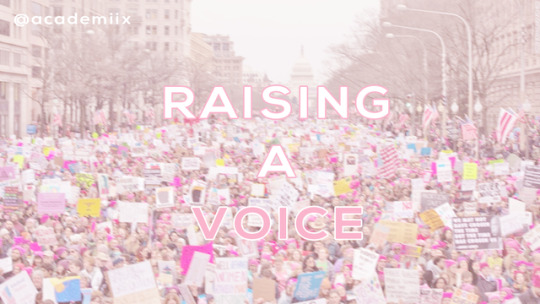
Raising A Voice
An incident happened a few weeks ago regarding members of my community that left me outraged and shocked, questioning how truly "progressive" the 21st century is.
I'll first give a background on this so-called community: ~85-90% Asian, upper-middle class, and academically high-achieving. It's inevitable to form an image in your mind when you encounter these labels, and perhaps that's the best way to understand the group I'm referencing. According to pure statistics and socio-economic status, we're a pretty homogeneous cohort, and not many know what it's like outside the bubble of this community.
We come from the great Seattle area, which is generally a fairly liberal region. However, specific members of this community commented extremely discriminatory ideas, which I'll sum up in a few phases: "blm is a lie" "Asians have more 'privilege' than whites" "poverty is due to life choices" and hating on the debate club of my school. All these phrases were said via social media on a group chat.
Outrageous, right? You're probably thinking, who would ever think that?
It was this moment when I glanced at the screenshots of the conversation, in which I had a sudden realization, and it was an absolutely terrible one. I finally figured out what it was like to not be able to speak, as if there was a voice screaming in my head but I did not, could not, verbalize my thoughts. A fury of emotions clashed through my brain--hatred, anger, frustration, and surprise--yet not a single one of these feelings could be expressed. I was not a part of the group chat, so it was impossible for me to get my message to others. At the same time, if I were to communicate with said members personally, I was faced with the potential derogatory labels and accusations of "starting drama." I thought, so this is what it felt like to be a marginalized group and not have the power of voice. This is how some people live every single moment of their lives, feeling powerless and invisible.
A habit that the United States (or should I say the 13 colonies) developed that is truly an "American" characteristic is the concept of voice--everyone is involved with adequate representation. But three hundred years ago, this "everyone" was only people that mattered: white males. Today, voice and representation has greatly expanded to include other groups, but there is still so much work to be done. I think having voice is the most powerful tool for change in contemporary society. But not only should we have it, we need to use our voices.
We need spaces where we feel safe to express opinions without negative consequences. This type of space needs to have free communication without regard to status, a horizontal platform where everyone is equal in ability and value. These types of spaces, whether physical or even on the internet, have the potential to create vast change--serving purposes like the taverns where the public conglomerated revolutionary ideas that spurred the American Revolutionary War.
When you see something that is socially unacceptable and just utterly immoral, speak up. The silence is a sign of acceptance, which will only further those terrible ideas that can put others at risk. And when others are trying to make their voice heard, help them create that space where they feel safe to release their point of view. Use what God gave you to create change for the better.
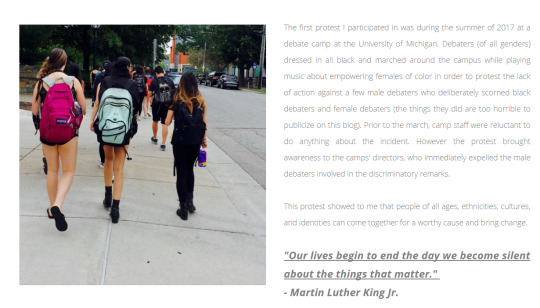
visit risandrita.weebly.com for more posts like these
50 notes
·
View notes
Text
New Year, New-robi
Hello again rafikis,
Thanks for following my journey so far!
Although it feels like 2019 was yesterday, I’m about to ring in my 5-month anniversary here in Nairobi. Over the past couple of months, I’ve been lucky to welcome several visitors to this great country, spend more time in rural communities and local watering holes (not literally #TIA), and even just get accustomed to a mundane daily routine in this exoticized place where I used to be a wide-eyed visitor. All of this has helped me see Nairobi through new eyes and given me greater perspective on this fascinating metropolis.


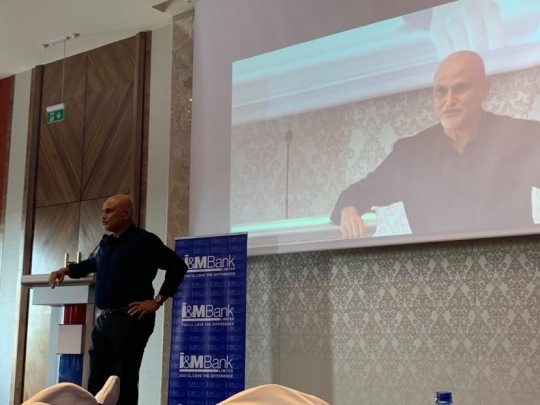
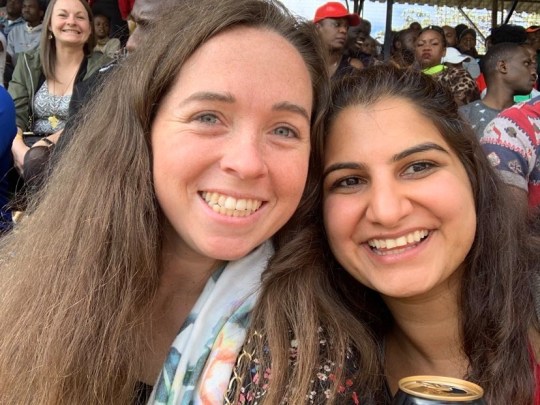
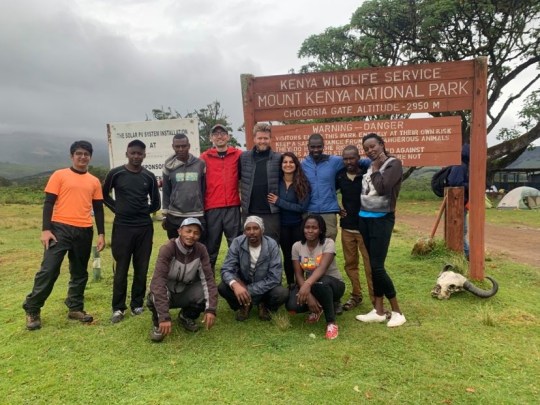

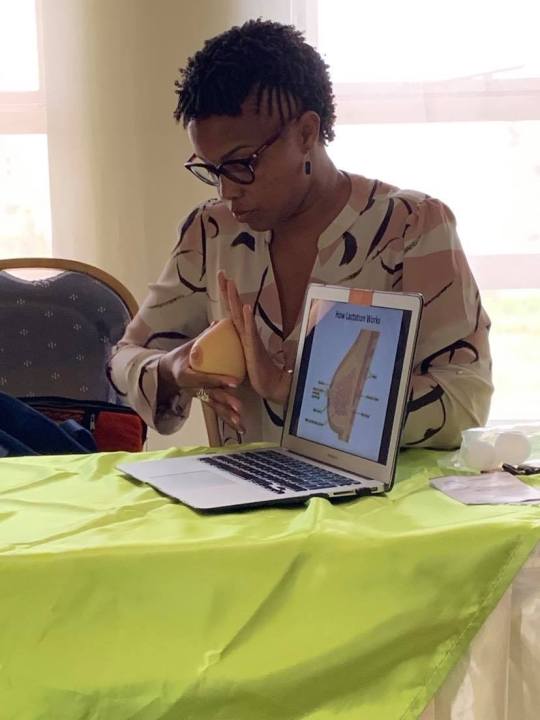
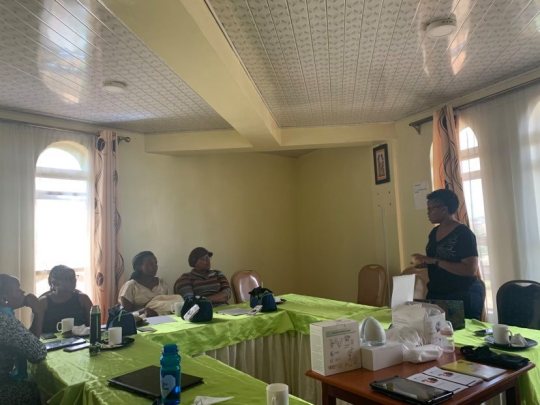
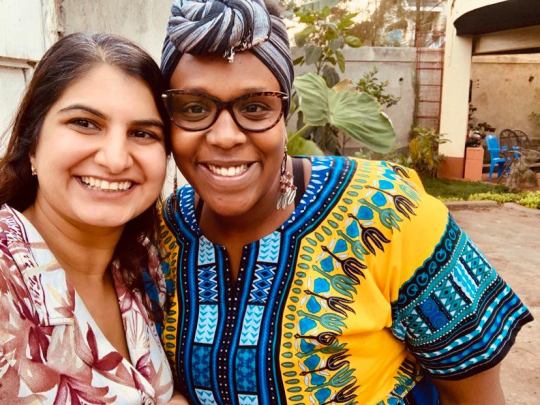

Even if my observations aren’t any more insightful, I’m hoping that, at the very least, my Swahili has improved after spending a few months here. Although I won’t lie, most of these sayings are from the interwebs (except the last one which is a Papa Jamal classic).
1. Umoja ni nguvu: Unity is strength
For anyone who has moved from a small rural town to a big urban city, you’ll know that one of the most noticeable differences is the level of diversity - in race, language, income levels, religious beliefs, political views, food, fashion, architecture, you name it… and often, this diversity is unfortunately correlated with conflict, violence, or a clash of civilizations.
Countries in Africa tend to benefit (or suffer) from this diversity inherently, thanks to the colonial legacy of how land was divided on the continent. Homogenous tribes and cultures were separated by borders arbitrarily drawn by European colonialists, creating some of the most ethnically diverse countries in the world. Nairobi, being a large, cosmopolitan African city, embodies this diversity on many levels: not only through a mix of Kenyan ethnicities, cultures, and perspectives, but also a smattering of the colourful mosaic of people who have immigrated here from across Africa and the rest of the globe.
At the risk of sounding like I’m making a political statement, which I am certainly not qualified to do yet, I would say that these diverse groups seem to live here in relative harmony. I wouldn’t go so far as saying Nairobi is safe - pretty much everyone who lives here has a story about a robbery or mugging (myself, unfortunately, included). However, given that its bordering nation, Somalia, known to be one of the most homogenous in Africa, has suffered from decades of unrest and infighting, you could conclude that greater diversity does not necessarily mean greater conflict.
Gaining a deeper understanding of Nairobi’s complex history has helped me untangle the resulting tapestry of cultures that has developed here over time, from large Bantu tribes like the Kikuyu, to the not-so-lovingly-named Kenyan Cowboys who remained here since the British rule, to the Indian ancestors of the railway labourers brought over by the Brits, the Arab traders who moved inland from the Swahili coast, to the more recent Chinese settlements that have formed as a result of their investments in infrastructure. Interacting with a broader range of communities here has given me a more nuanced perspective on the divergence between conservative and progressive opinions on religion, politics, gender roles, relationships, sexual orientation, family structure, and values that exist in this city. At the same time, I’ve been fortunate to experience the culture and creative expression that blossom from this juxtaposition of traditional and edgy, in the form of music, art, comedy, and dance, while also revelling in the ability to flip seamlessly from nature reserve to bustling city a heartbeat and switch between wellness retreat to raging nightlife within just a short Bolt ride. Though diversity can be seen in all flavours and colours here, Nairobians prosper by recognizing that there is more strength in unity than conflict.
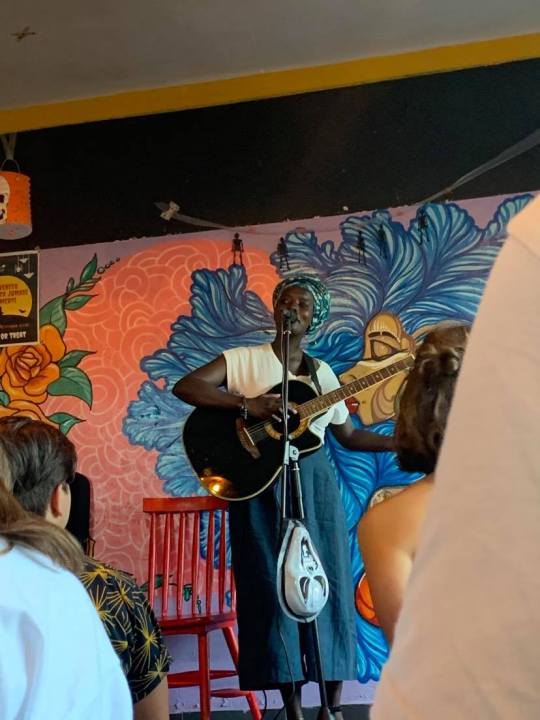
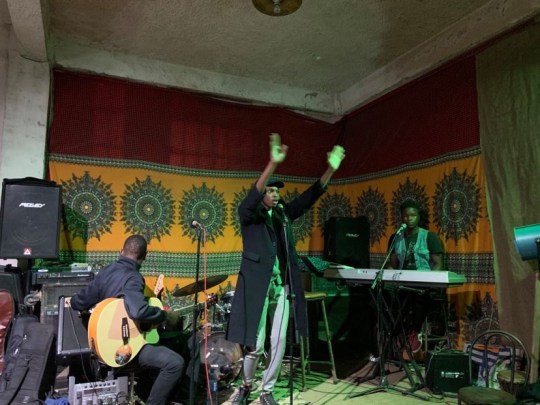

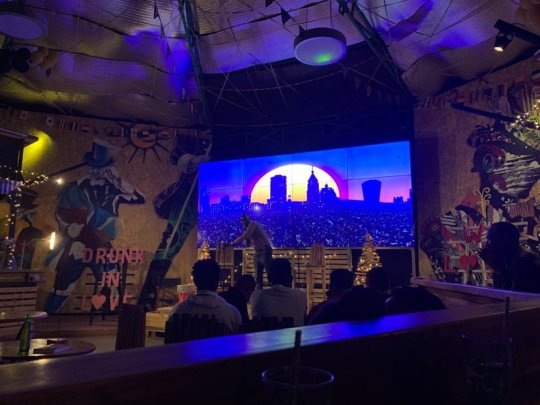
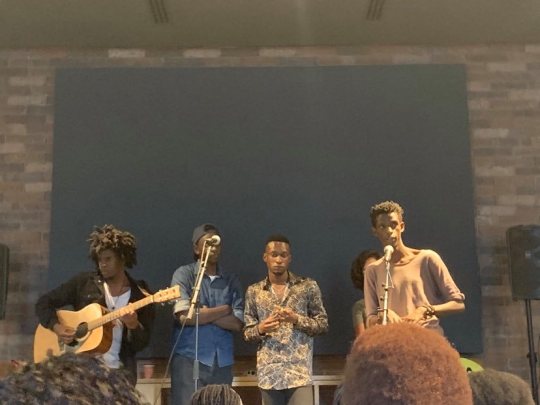




2. Adui wa mtu, ni mtu: The enemy of man is man
Of course, it’s not all sunshine and rainbows here (in fact, the rains had been non-stop for months!) - you can’t have a conversation about Kenyan life without addressing the vast inequalities and corruption that exist. For the billions of dollars invested in the country through grants, foreign aid, and impact investment, there are still gaping holes in infrastructure, healthcare and education that are yet to be tackled. It seems that politicians, public officials, donors, investors, and aid workers might be getting in their own way when it comes to making significant progress on the systemic issues that plague the country. The war on corruption makes daily headlines here yet many parts of policy making, procurement, regulation, and enforcement are driven by political agendas and misaligned financial incentives.
Even policy efforts that I generally support can by driven by a politicized PR angle. For example, Kenya’s ban on plastic bags, known to be the toughest in the world, took 10 years to implement and enforce successfully. While this policy has made a significant impact on waste management, animal health, and overall environmental protection, it was championed by a highly publicized race for implementation among East African governments. One could argue that the ends justify the means, now that 24 African countries have successfully banned plastic bag use, until you step back and consider the greater threats to environmental conservation like the widespread use of diesel fuel or practices like trash burning that are still prevalent in these countries. Similarly, and closer to home for me, much fanfare has been made about maternal employment and breastfeeding policies in local media, now that all employers are required to provide a lactation space for new mothers. However, due to their non-existent enforcement strategy, only 40 companies across Kenya have actually created lactation rooms so far.
While these political concerns may seem lofty, they can become significant considerations in making career choices and conducting daily life in this country. To commercialize a new breast pump in this market, I know I’ll need a well-connected network that spans government, regulatory bodies, distributors, retailers, healthcare providers, and key opinion leaders to counter the inevitable pressure to comply with the bribery and bureaucracy that often infiltrates these sectors. Many of the industry conferences I’ve attended aim to tackle these challenges by crowd-sourcing solutions within the community or, at the very least, encouraging key players not to concede to this systemic corruption.
On a daily basis, while it’s impossible not to confront your privilege as a foreigner living here, it is also difficult to know how to maximize your positive impact: do you donate to your favorite charity, give cash directly to the people begging on the street, volunteer for programs in the informal settlements, or advocate for further policy change and enforcement through your network? The complex system of incentives and unintended consequences make it impossible to calculate the net impact of your every action. Organizations like “Give Directly” have extensive research on the positive impact of unconditional direct cash transfers to individuals living in extreme poverty, which eliminate the potential bureaucratic redundancies of social interventions targeted at these communities. My personal conclusion is that as long as we aim to ensure that man does not become the enemy of his own good intentions in these efforts, we can work towards making a net positive social impact.
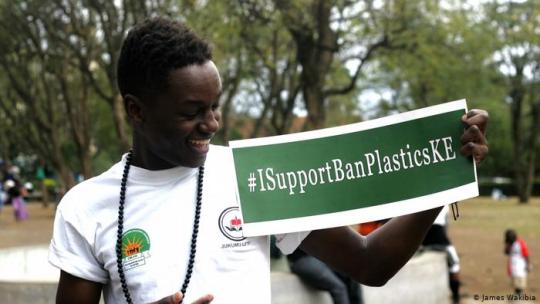

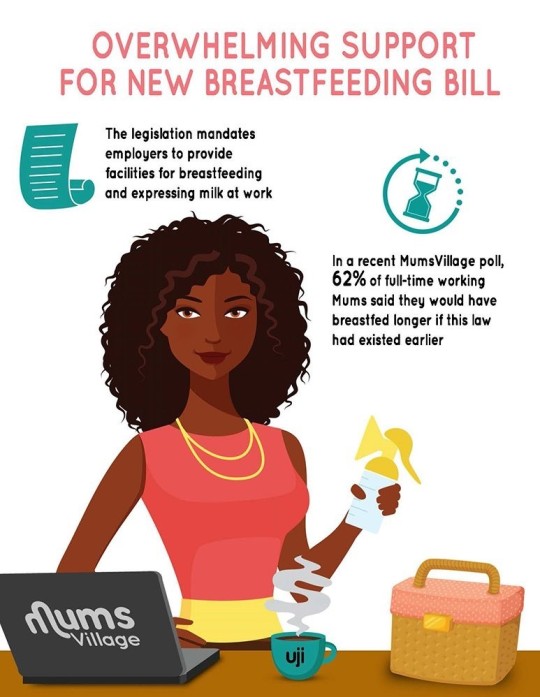
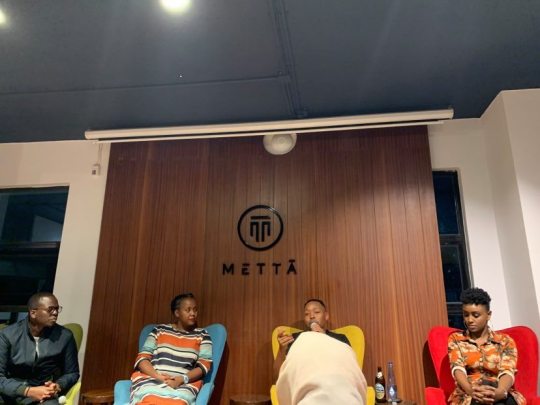
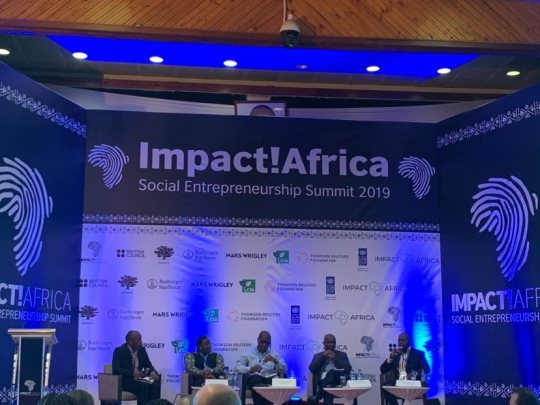
3. Haba na haba hujaza kibaba: Little by little fills the pot
Whatever qualms you might have with Kenyan society, if there’s one thing you can commend Nairobians for it’s their hustle. Everyone from your housekeeper to your manager is likely rocking a side-gig, whether its delivering Jumia orders or semi-professional stand-up comedy. Before Nairobi became a hotbed for entrepreneurship and terms like ‘impact investing’ were even invented, Kenyans had been pitching tents to sell their farm’s produce on the street and exporting their handicrafts around the world. Since then, strategic public and private sector efforts have continued empowering these entrepreneurs; for instance, through significant investments in enabling technology such as mobile payments.
All that to say, when it comes to innovative ideas and self-employment, I have known Nairobians to be extremely optimistic and perseverant. Which is why I am always pleasantly surprised to hear those three words that every girl dreams of, after I describe my business to any Kenyan: “It will work.”
This simple phase hits on a very special insight that is an important ingredient in the makings of every entrepreneur: an unabashed optimism that things will work out. And if they aren’t quite working yet, it’s only a matter of time and hard work until they do. Little by little, we will all get where we need to go.
When you are starting to build the foundation of a business and testing the assumptions that are the basis of your idea, this type of encouraging and frequent reassurance can make a world of difference. While it’s important to be realistic, or even borderline cynical, about the positive market feedback you receive in contrived research settings like focus groups, sometimes it’s just nice to take a moment and indulge in some external validation from a total stranger that you’re not totally out of your mind - “it will work”.
And this is the way we all support each other and survive here in our little bubble of dreamers and doers. Things are not always easy and sometimes you bump into cultural clashes or politics and bureaucracy, but these are all just hurdles in the rat race that we idealists happily skirt around in pursuit of our nobler ambitions. Knowing that we are all hustling and working towards the same broader goals, we gladly go out of our way to lend a hand, partner with each other, subsidize our services, and give free advice. Despite not living in an affluent country, people here are rich with positivity, tenacity, and generosity.
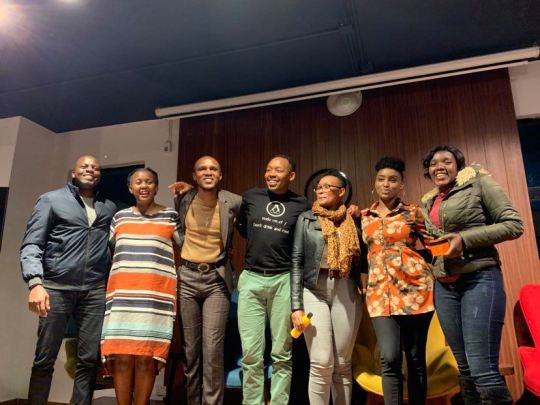




Asanteni sana! Until next time,
Sahar
0 notes
Text
[More on] Language, history, and the LGBTQ Community
Labels help us understand the world, but not necessarily understand each other. The history of the LGBTQ community has diverse and ever changing language that causes a divide between parts of the community due to a multitude of differences within the community. Because the LGBTQ community transcends the typical boundaries of identity, such as culture or heritage, the dynamics between members of what society considers “one group” often causes clashes within the group because there is no single experience. One of the more popular phrases about the LGBTQ community is that, “we have always been here.” When discussing the LGBTQ community, LGBTQ people have always existed but have not necessarily had the language and terminology to speak about who they were or safely communicate their identities to others. This often complicates history as the people we now would call lesbian, gay, bisexual or transgender may not have had that language to refer to themselves. Those within the LGBTQ community have labeled historical figures with different identifies such as lesbian, gay, bisexual and transgender, similar to themselves, out of a sense of community and comfort. The complexities of the LGBTQ community often are erased among other LGBTQ community members to normalize themselves and to appease cisgender heterosexual society.
There are often arguments about what is the most appropriate label for those historical figures. For example, “was this person a butch woman or a transgender man” and “was he gay or bisexual” because historically this language did not exist. We will never truly know what label best fit them. This is complex because people will often mislabel living people, most commonly erasing someone’s bisexuality based upon their current partner. This is a different situation than that of historical figures, as there was often not a label available at that time. Erasing the identity a person who had explicitly stated their identity erases the impact they had on that specific community, often through a process to normalize their identities.
The normalization of LGBTQ people from within the community most commonly occurs to those who are bisexual, transgender, or gender nonconforming This recently occurred with some famous figures in the media, including people such as Freddie Mercury and David Bowie. Their identities and experiences with more than one gender were erased through a belief that homophobia was a factor in their coming out as gay. This includes Mercury’s long time female lover telling him that he was gay after Mercury told her he was bisexual1. Bowie also fought the media which tried to challenge his identity. After openly stating he was bisexual, the media responded with confusion as if he needed to pick a gender to be attracted to2. Following Mercury’s passing many people, including past lovers, mentioned that they believed that Mercury was gay and that it was internalized homophobia that caused him not to identify as such. Even though he was clear in his identity, people felt the need to correct him. The in-betweenness of Bowie and Mercury created a space of uncomfortability both outside and within the LGBTQ community1,2. Those historical figures who had no language to define themselves are very different from those such as Bowie and Mercury who were known for stating their sexuality, only to have it erased by “their own community members”.
During the second week of class we read Johnson’s work which states “The real illusion connected to difference is the popular assumption that people are naturally afraid of what they don't know or understand.”3 This perpetuates the belief that people fear what is different from themselves even within the LGBTQ community.3 Instilling this belief has led to rampant biphobia within the LGBTQ community, as so many people within it actively refuse to understand bisexuality as a legitimate and whole identity.
This uncomfortability with difference is similar to what was mentioned in the earlier blog post “Corporatization and Commercialization of the LGBTQ community”. The work of Mattilda Bernstein Sycamore, mentions that the white gay men who owned the local gay bars had LGBTQ people of color arrested for the single reason that they were homeless living in front of their bars5. There is an assumption, as Johnson states, that because the middle class white gay men have different experiences than that of the homeless LGBTQ people of color, the middle class white gay men felt that their bars and they, themselves were threatened by the very existence of the homeless LGBTQ people of color3,5.
The promotion of uncomfortability with difference has led to a justification of transphobia, biphobia, racism, and classism within the LGBTQ community. The statement that it is inevitable that different types of people cannot get along or work together is harmful to such a diverse group of people fighting oppression at different levels. As mentioned in class, this is not the ‘oppression Olympics’ and using other people's oppression to harm them will help no one. The constant clashing within the LGBTQ community is dangerous and often used against those who are the most oppressed. Transgender women of color, particularly black transgender women, face extreme levels of violence and yet many members of the LGBTQ(LG) community promote transphobia and transmisogyny4 . Rather than uplift the most marginalized in the community, they are often made invisible and even killed.
On a personal note:
As someone whose identity does not fit neatly into binary labels, I have always felt pressure to describe my identity and why I identify that way. Though I am comfortable doing so, not everyone is. The nature of language complicates identity, especially for those who do not have binary identities, or define their identity differently than what is most culturally present, face unique challenges.
Sources
1Anderson-Minshall, Diane. (2016). Freddie Mercury's Life Is the Story of HIV, Bisexuality, and Queer Identity. The Advocate.
2Bowie, David. (1979). David Bowie - Interview - Afternoon plus - 1979
3Johnson, Allan. (2004). Privilege, Oppression and Difference. Privilege, Power & Difference. (2nd Ed.) 12-40
4Rook, Erin, (2017). Miami’s Chay Reed is the ninth reported transgender woman murdered this year. LGBTQ Nation.
5Sycamore, Mattilda Bernstein. (2005). Sweatshop-produced rainbow flags and participatory patriarchy: Why the Gay Rights Movement is a sham. LiP Magazine
0 notes